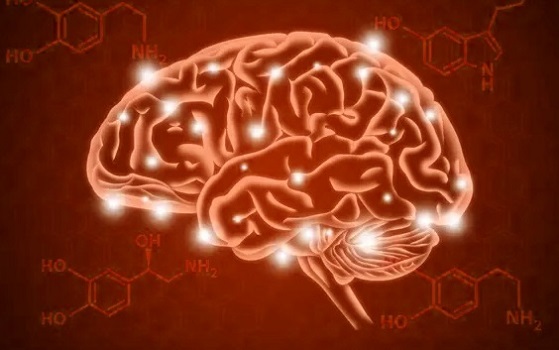Brain Chemistry Differences Reveal Why Long COVID Is Not the Same as Chronic Fatigue Syndrome
Nikhil Prasad Fact checked by:Thailand Medical News Team Jul 13, 2025 7 months, 23 hours, 57 minutes ago
Medical News: New Study Highlights Major Brain Chemistry Differences in Long COVID and Chronic Fatigue Syndrome
A groundbreaking study by researchers from the University of Oxford, University of Manchester, University of North Carolina, and the Slovak Academy of Sciences has revealed crucial brain chemical differences between people with Long COVID and those suffering from Myalgic Encephalitis/Chronic Fatigue Syndrome (ME/CFS). Although both conditions share common symptoms like extreme fatigue, brain fog, and cognitive dysfunction, this new research suggests that they may have very different underlying biological causes.
 Brain Chemistry Differences Reveal Why Long COVID Is Not the Same as Chronic Fatigue Syndrome
Brain Chemistry Differences Reveal Why Long COVID Is Not the Same as Chronic Fatigue Syndrome
Using an advanced imaging technology called 7-Tesla Magnetic Resonance Spectroscopy (MRS), scientists examined the brain and muscle chemistry of 73 participants: 24 with ME/CFS, 25 with Long COVID, and 24 healthy controls. This
Medical News report uncovers how even though the symptoms appear similar, the brain responds quite differently in each illness.
ME/CFS Patients Show Signs of Energy Crisis in the Brain
Researchers found that patients with ME/CFS had significantly higher levels of lactate—a substance linked to poor energy production—in two key areas of the brain: the pregenual anterior cingulate cortex (pgACC) and the dorsal anterior cingulate cortex (dACC). This suggests the brain in ME/CFS patients may be struggling to produce energy efficiently, possibly due to mitochondrial dysfunction, a condition in which cells fail to use oxygen properly to generate energy.
Interestingly, elevated brain lactate is also commonly associated with inflammation. This supports past findings suggesting ME/CFS may involve chronic low-grade neuroinflammation. However, the muscle scans of ME/CFS patients did not reveal any major abnormalities, indicating that the brain may be more affected than the muscles in this condition.
Long COVID Patients Show Different Brain Changes
In contrast, Long COVID patients did not have higher lactate levels. Instead, they had significantly reduced levels of a brain chemical called total choline in the dACC region. Choline is essential for brain cell health and may play a role in preventing small blood clots. Given the increasing evidence linking Long COVID brain fog to microclots, this finding could be an important clue in understanding the condition.
No major differences were found in muscle biochemistry between the groups, although there was a small trend suggesting lower levels of carnosine—a muscle-protective compound—in both ME/CFS and Long COVID patients compared to healthy individuals.
Important Implications for Diagnosis and Treatment
The study’s findings clearly show that ME/CFS and Long COVID should not be lumped together as a single post-viral fatigue condition. Even though the symptoms overlap, the underlying brain chemistry is distinct. This means th
at treatment approaches may also need to be different for each condition.
Researchers emphasize that these differences highlight the importance of not generalizing Long COVID as just another version of ME/CFS. Until more is understood, doctors and researchers should treat them as separate illnesses. These new insights also bring hope for developing targeted therapies in the future by focusing on these unique brain chemical patterns.
The study findings were published in the peer reviewed journal: Molecular Psychiatry
https://link.springer.com/article/10.1038/s41380-025-03108-8
For the latest COVID-19 News, keep on logging to Thailand
Medical News.
Read Also:
https://www.thailandmedical.news/news/dna-methylation-changes-link-long-covid-to-chronic-fatigue-in-new-study-by-new-zealand-scientists
https://www.thailandmedical.news/news/creatine-shows-promise-in-treating-post-viral-fatigue-syndrome-especially-in-long-covid-patients
https://www.thailandmedical.news/news/researchers-uncover-how-myostatin-and-irisin-may-drive-persistent-exhaustion-in-covid-19-survivors
